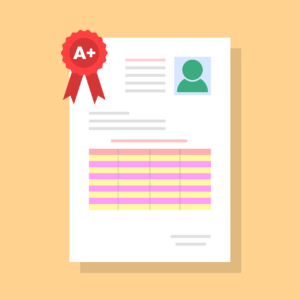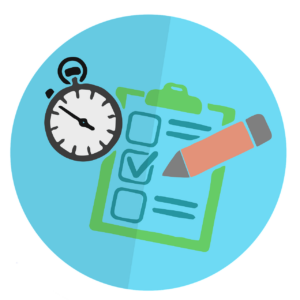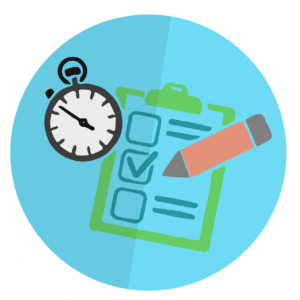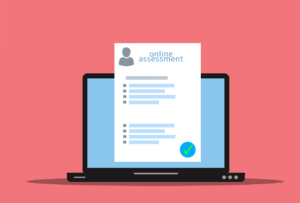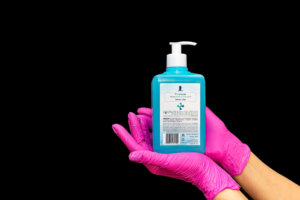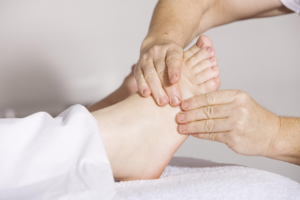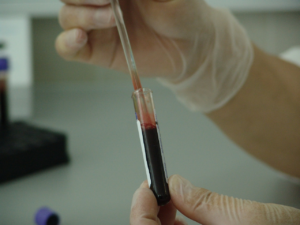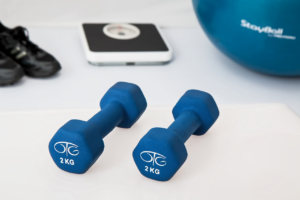Are you getting ready to take the NCLEX exam? Congratulations on making it this far! The NCLEX is a rigorous test that requires preparation, focus, and the right mindset to pass. However, the big day can be stressful, and it’s easy to let your nerves get the best of you. That’s why we’ve put together this guide of dos and don’ts for a successful test experience. By following these tips, you’ll be able to approach the exam with confidence and give yourself the best chance of success.
First and foremost, it’s essential to get a good night’s sleep before the exam. A well-rested mind is better equipped to handle the challenges of the NCLEX, so make sure you get at least seven hours of sleep the night before.
On the other hand, cramming at the last minute is a recipe for disaster. Your brain needs time to absorb information, so avoid the urge to study all night and trust that you’ve done everything you can to prepare.
By arriving at the testing center early, reading the questions carefully, and staying calm under pressure, you’ll be well on your way to becoming a licensed nurse.
Key Takeaways
- Arrive at the testing center early to alleviate stress and ensure a smooth start to your NCLEX journey
- Effective time management is key to success on the NCLEX exam, read the questions carefully and implement effective test-taking strategies
- Avoid bringing prohibited items to the testing center as the consequences could be severe
- Managing anxiety is crucial to your success, stay confident, stay focused, and stay calm.
Do: Get a Good Night’s Sleep Before the Exam
It’s crucial to get a good night’s sleep before the exam, so don’t stay up too late studying! The benefits of sleep cannot be overstated, especially when it comes to pre exam preparation.
A good night’s sleep can help improve memory, sharpen focus and cognitive function, and reduce stress levels, all of which are essential for acing the NCLEX exam.
In addition to the physical benefits of sleep, it’s also important to recognize the importance of mental rest and relaxation techniques.
Taking time to unwind and relax before bed can help calm the mind and alleviate anxiety, making it easier to fall asleep and stay asleep throughout the night.
Some effective relaxation techniques include deep breathing exercises, meditation, and gentle stretching or yoga.
So, make sure to prioritize a good night’s sleep and incorporate relaxation techniques into your pre-exam routine for a successful test experience.
Don’t: Cram Last Minute
Avoid cramming at the last minute if you want to truly understand the material and perform well during the test. Cramming may seem like a quick fix to refresh your memory, but it can actually be counterproductive. Instead of trying to memorize everything, focus on reviewing the key concepts and understanding how they relate to each other. This will help you retain the information better and apply it to different scenarios during the exam.
Remember, the goal is not just to pass the test, but to be a competent and knowledgeable nurse.
To avoid cramming, it’s important to stay calm and manage your time effectively. Here are some tips to help you do just that:
-
Make a study schedule in advance and stick to it. This will help you avoid cramming and ensure that you cover all the material in a timely manner.
-
Take breaks and give yourself time to relax. This will help you stay focused and prevent burnout. Go for a walk, listen to music, or do something else that you enjoy to recharge your batteries.
By avoiding cramming and staying calm, you can approach the NCLEX exam with confidence and perform at your best. Remember, preparation and mindset are key to success!
Do: Arrive Early to the Testing Center
Arriving early to the testing center can help alleviate stress and ensure a smooth start to your NCLEX journey. By giving yourself plenty of time to get settled in, you can avoid the added anxiety that comes with rushing to the testing center.
Make sure to plan your route ahead of time and factor in any potential traffic or parking delays. Once you arrive, take a few moments to collect yourself and mentally prepare for the exam.
Tips for managing test anxiety can also be helpful in the lead-up to your NCLEX exam. Practicing relaxation techniques such as deep breathing, visualization, and progressive muscle relaxation can help calm your nerves and keep you focused.
Remember to prioritize self-care in the days leading up to your exam by getting enough sleep, eating healthy meals, and staying hydrated.
By arriving early and taking care of yourself, you’ll be able to approach the NCLEX with a clear mind and the confidence needed to succeed.
Don’t: Bring Prohibited Items
Make sure you don’t bring any prohibited items with you to the testing center to avoid any potential disruptions during your journey to becoming a licensed nurse.
The National Council of State Boards of Nursing (NCSBN) strictly prohibits the use of any electronic device or study materials during the exam. This includes but is not limited to cellphones, smartwatches, headphones, and any other personal belongings that may be deemed as cheating tools.
If you are caught with any prohibited items, the consequences could be severe. You may be asked to leave the testing center, your exam score may be invalidated, and you may have to wait for a certain period before retaking the NCLEX.
To avoid any of these outcomes, it’s best to leave all unnecessary items at home or in a secure location outside of the testing center. Remember, the NCLEX is the gateway to your nursing career, and it’s essential to take every precaution to ensure a successful test experience.
Do: Read the Questions Carefully
Reading the questions carefully is crucial to achieving a passing score on the nursing licensure exam, as it allows you to fully understand what’s being asked and select the most appropriate answer.
To do this, you need to employ effective question strategies, such as identifying keywords, determining the type of question being asked, and eliminating obviously incorrect options.
Make sure to read each question thoroughly, paying close attention to details such as numbers, dates, and specific phrases. It’s also important to manage your time wisely and avoid spending too much time on difficult questions, as this can eat up valuable time that could be better spent on easier questions.
Effective time management is key to success on the NCLEX exam, as it ensures that you are able to answer all the questions within the allotted time frame.
To do this, you should start by budgeting your time and allocating a specific amount of time for each question. This allows you to move through the exam efficiently and ensures that you have enough time to answer all the questions.
If you encounter a difficult question, don’t spend too much time on it; instead, skip it and come back to it later if you have time.
By reading the questions carefully and managing your time wisely, you can increase your chances of passing the NCLEX and becoming a licensed nurse.
Don’t: Panic or Give Up if You Encounter Difficult Questions
Don’t freak out or quit if you come across challenging questions on the nursing licensure exam, but keep calm and use the strategies you’ve learned to work through them. It’s normal to feel anxious during the exam, but managing anxiety is crucial to your success.
Take a deep breath and remind yourself that you’ve prepared for this moment, and you’re capable of answering difficult questions. To help you overcome challenging questions, implement effective test-taking strategies such as eliminating answer choices that are obviously wrong, guessing if you don’t know the answer, and using the process of elimination.
Seeking help from the proctor or exam administrator is a viable option if you’re unsure about the question or if you experience any technical difficulties. Additionally, coping mechanisms such as positive self-talk, visualization, and taking breaks can help alleviate anxiety and improve your focus.
Remember, the NCLEX is not just a test of knowledge but also a test of your ability to manage stress and handle high-pressure situations. Stay confident, stay focused, and stay calm.
Frequently Asked Questions
What should I do if I get sick on the day of the exam?
If you get sick on the day of your exam, it can be really stressful. The first thing you should do is take care of yourself. If you’re feeling nauseous or have a headache, take some medication and rest.
If you’re having more serious symptoms, like a fever or vomiting, it’s best to reschedule your exam. Try not to stress too much about it, as stress can make your symptoms worse.
And if you’re feeling anxious about the exam itself, try some relaxation techniques, like deep breathing or visualization exercises. Remember, it’s normal to feel nervous before a big test, but there are ways to manage your anxiety and feel more confident.
Can I bring my own calculator to the exam?
Yes, you’re allowed to bring your own calculator to the NCLEX exam. However, there are certain exam room rules that you need to adhere to.
Your calculator should be a simple, battery-operated device without any programming capabilities. You can’t use a calculator that has a QWERTY keyboard or one that can store data or offer communication capabilities. The exam proctors will check your calculator before the exam to ensure it meets the required standards.
You should also note that you can’t use your calculator during the tutorial, but only during the actual exam. Therefore, make sure you bring a calculator that you’re comfortable using and that you’ve practiced with before the exam day.
How long does it take to receive the exam results?
After taking the NCLEX exam, you may be wondering how long it takes to receive your exam results.
The NCLEX Exam Result Waiting Period can take up to six weeks, but most candidates receive their results within two weeks.
The exam result notification methods include receiving an email notification from your state board of nursing or the National Council of State Boards of Nursing (NCSBN), as well as checking your results online through the Pearson VUE website.
It’s important to note that some states may have different notification methods, so it’s best to check with your state board of nursing for specific instructions.
Can I request extra time for the exam due to a disability?
If you have a disability that affects your ability to take the NCLEX exam, you may be able to request accommodations such as extra time. However, you’ll need to provide documentation of your disability and how it impacts your testing abilities.
This documentation should be submitted to the National Council of State Boards of Nursing at least 30 days prior to your scheduled exam date. The request for accommodations will then be reviewed and a decision will be made on whether or not to grant them.
It’s important to note that not all requests for accommodations will be approved, so it’s best to submit your request and documentation as early as possible to allow time for any necessary appeals or alternative plans.
What happens if I accidentally leave my identification at home?
If you accidentally leave your identification at home on the day of your NCLEX exam, you may not be allowed to take the test. It’s important to have a valid ID with you because it proves your identity and eligibility to take the exam.
However, if this happens, you should immediately contact the testing center and explain the situation. They may allow you to use an ID replacement or reschedule your exam for another day.
It’s always better to be prepared and double-check that you have all the necessary documents before leaving for the exam.
Conclusion
Congratulations! You’ve made it to the end of the article and you’re now equipped with the dos and don’ts for a successful NCLEX exam day.
Remember to get a good night’s sleep before the exam and avoid cramming last minute.
Arrive early to the testing center and make sure you don’t bring any prohibited items.
When you encounter difficult questions, don’t panic or give up. Instead, take a deep breath and read the questions carefully.
Remember, you’ve worked hard to get to this point and you’re capable of passing the NCLEX.
With these tips in mind, you can approach the exam with confidence and give it your best shot.
Good luck!









